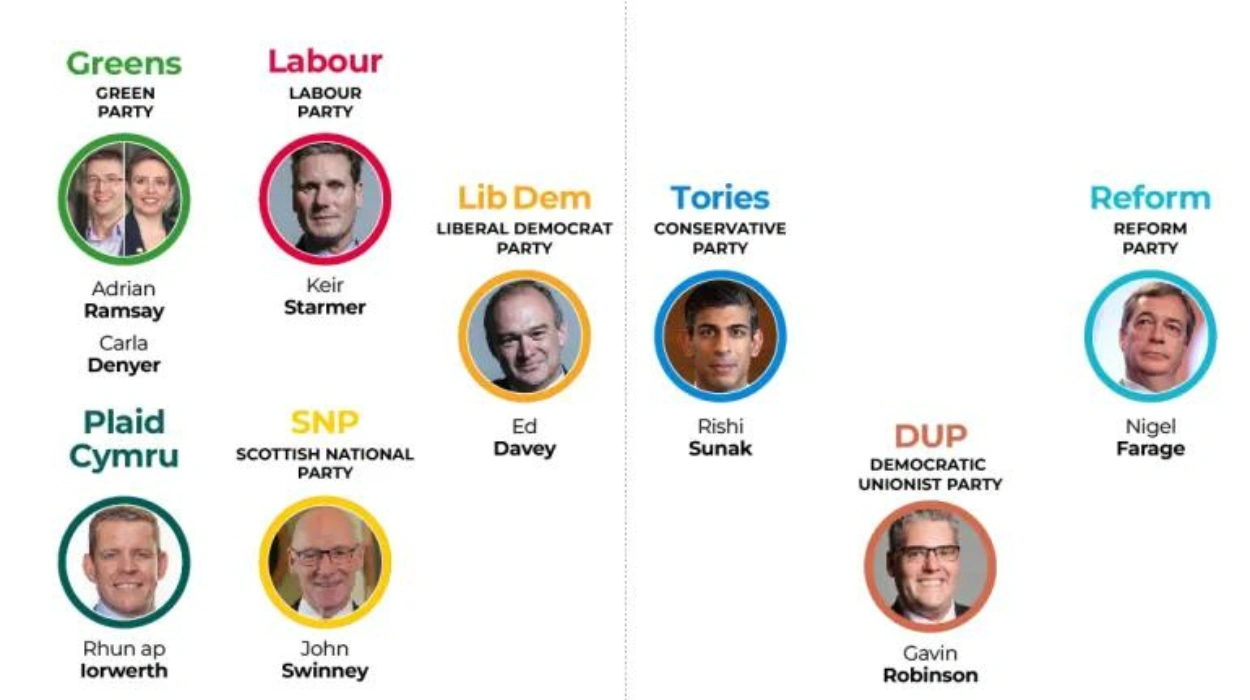As the United Kingdom prepares for the general elections on July 4, political parties are actively campaigning for votes, each presenting their visions for the country’s future. This election follows Prime Minister Rishi Sunak’s announcement of snap elections on May 22, setting the stage for a competitive political landscape.
Overview of the Election Context
With 650 seats up for grabs in the House of Commons, the lower house of Parliament, each party has unveiled their manifestos outlining their positions on crucial issues. These manifestos cover a wide range of topics, including the economy, immigration, healthcare, and the UK’s relationship with the European Union.
The last general election took place in December 2019, resulting in Boris Johnson leading the Conservative Party back into power. Following Sunak’s announcement, Parliament was dissolved on May 30, marking the beginning of a period known as “purdah.” During this time, civil servants and local governments are required to avoid making announcements that could be perceived as advantageous to any political party. However, candidates are still allowed to campaign and engage with voters.
Main Political Parties and Their Promises
As the election approaches, several key parties have emerged, each with distinct promises aimed at addressing the pressing issues facing the nation. Here’s a closer look at the main political parties and their proposals:
Conservative Party
The ruling Conservative Party, under Prime Minister Rishi Sunak, has emphasized plans to stabilize the economy, reduce taxes, and strengthen border control measures. The party’s manifesto highlights its commitment to the National Health Service (NHS) and promises to enhance funding for healthcare services.
Labour Party
The Labour Party, led by Keir Starmer, is positioning itself as a champion of working-class interests. Their manifesto includes ambitious plans to invest in public services, increase the minimum wage, and tackle climate change through green initiatives. Labour also advocates for a review of immigration policies to ensure fairness and compassion.
Liberal Democrats
The Liberal Democrats, led by Ed Davey, focus on civil liberties, education reform, and environmental sustainability. Their proposals include significant investments in renewable energy, reforming the education system to provide better access for all, and revisiting the UK’s relationship with the EU.
Scottish National Party (SNP)
The SNP, under Nicola Sturgeon, continues to advocate for Scottish independence and greater devolved powers. Their manifesto emphasizes the need for investment in Scottish public services and a commitment to tackling climate change through sustainable practices.
Other Notable Parties
In addition to the major parties, several smaller parties, including the Green Party and Plaid Cymru, are also campaigning vigorously. The Green Party focuses on environmental issues and social justice, while Plaid Cymru aims to represent Welsh interests and promote greater autonomy for Wales.
Conclusion
As the UK gears up for the upcoming general elections, voters face a wide array of choices among the various political parties. Each party’s manifesto reflects its vision for the future, with promises that address key issues affecting citizens. The election results will shape the UK’s trajectory, influencing everything from economic policy to international relations.

